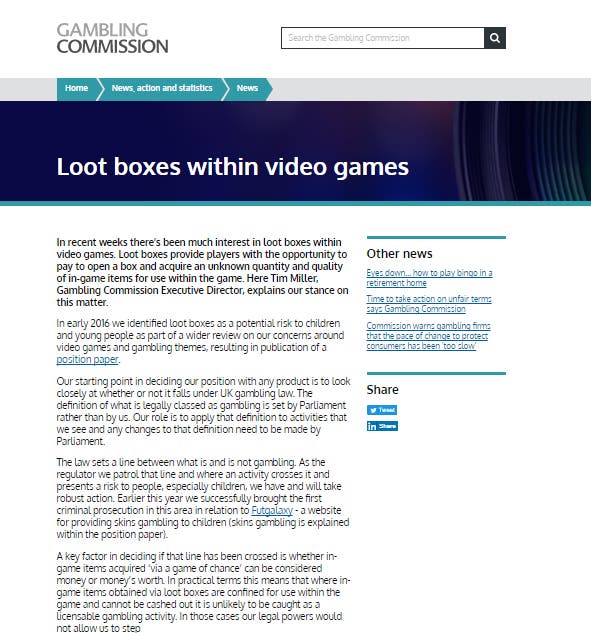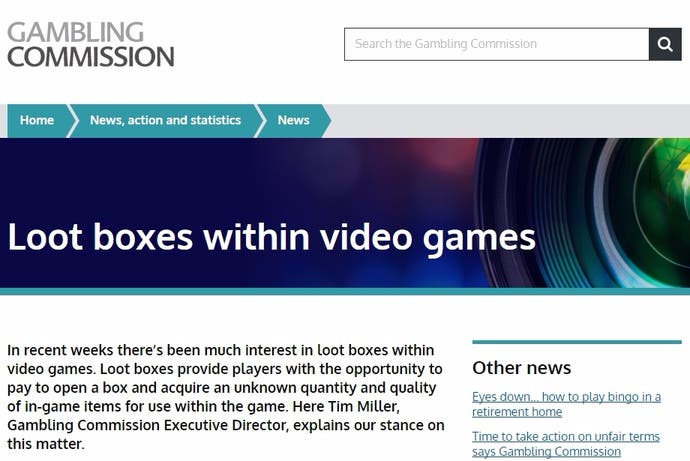UK Gambling Commission weighs in on how it can - and can't - regulate in-game loot boxes
Better crate than never.
The loot box debate has hit the mainstream media in a big way in the past couple of weeks, specifically due to their appearance in Star Wars: Battlefront 2, resulting in both Belgian and Hawaiian authorities calling for a ban and launching investigations into the practice. But what about the UK Gambling Commission, which has stayed fairly quiet about the issue. Will it launch its own investigation anytime soon?

In short, the answer seems to be no. That's according to an official blog post from the Gambling Commission's executive director Tim Miller, which addresses concerns about loot boxes in video games.
Parliament is responsible for setting the definition of what is legally classed as gambling and the Gambling Commission simply enforces the laws laid down, the blog states.
"The law sets a line between what is and is not gambling," Miller wrote. "As the regulator we patrol that line and where an activity crosses it and presents a risk to people, especially children, we have and will take robust action."
The line is crossed, the Gambling Commission says, when players have the ability to cash out.
"A key factor in deciding if that line has been crossed is whether in-game items acquired 'via a game of chance' can be considered money or money's worth," Miller continued. "In practical terms this means that where in-game items obtained via loot boxes are confined for use within the game and cannot be cashed out it is unlikely to be caught as a licensable gambling activity. In those cases our legal powers would not allow us to step in."
This is a stipulation the Gambling Commission has repeated time and time again, particularly in its position paper from earlier this year. However, Eurogamer proved you can definitely cash out in games such as FIFA 18. This is done through third-party sites, though, and not through game itself.
And it's here the Gambling Commission can step in - not to tackle the game itself, but the third-party sites which operate off of it. Earlier this year, the Gambling Commission secured the first conviction of this type in the UK - of YouTuber Craig "Nepenthez" Douglas, who operated an illegal gambling site using FIFA Ultimate Team coins and which was targeted towards children.
Miller went on to acknowledge "many parents are not interested in whether an activity meets a legal definition of 'gambling'" and suggested the responsibility to regulate loot box lies with the video game developers themselves.
"We are concerned with the growth in examples where the line between video gaming and gambling is becoming increasingly blurred," continued Miller. "Where it does meet the definition of gambling it is our job to ensure that children are protected and we have lots of rules in place, like age verification requirements, to do that."
"Where a product does not meet that test to be classed as gambling but could potentially cause harm to children, parents will undoubtedly expect proper protections to be put in place by those that create, sell and regulate those products."










